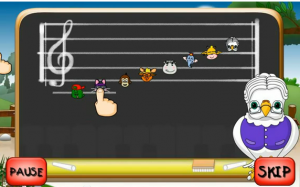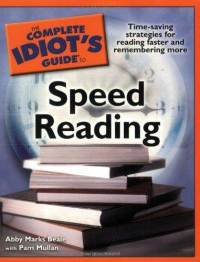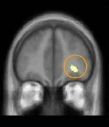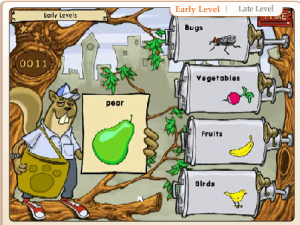Can the ABCs Unblock Your Mental Performance?
 Cognitive Behavioral Therapy (CBT) has seen a lot of success over the last 25 years. The ideas is that faulty assumptions or patterns of thinking can seriously impair how we learn, make decisions, socialize or otherwise perform cognitive functions. In CBT the therapist works with the patient to surface the faulty pattern of thinking and change it thereby relieving the problems. The tools of CBT have been incorporated in other disciplines such as leadership, design and self improvement.
Cognitive Behavioral Therapy (CBT) has seen a lot of success over the last 25 years. The ideas is that faulty assumptions or patterns of thinking can seriously impair how we learn, make decisions, socialize or otherwise perform cognitive functions. In CBT the therapist works with the patient to surface the faulty pattern of thinking and change it thereby relieving the problems. The tools of CBT have been incorporated in other disciplines such as leadership, design and self improvement.
As a self-improvement approach the individual attempts to surface and alter faulty assumptions pretty much on their own. While the success of the self-improvement approach has not been scientific demonstrated it does seem to have staying power. More and more books, programs and training events are aimed at how individuals can use CBT to manage their owning thinking and improve cognitive performance. Such programs are typically focused on learning:
- The ABC formula (see diagram) or the connection between activating events, the beliefs they generate and the emotional consequent or feeling we have
- How to analyze self talk especially those messages we repeat
- Ways to identify patterns of dysfunctional thinking (e.g. over generalizing or catastrophizing)
- Techniques for modifying the patterns (e.g. confronting and flooding).
For example you can use this approach to identify and mitigate the negative self-talk that stops you from taking action, making a difficult decision or giving a presentation. To explore CBT further you can work through a short online presentation developed by James Porter or check out CBT for Dummies.
Interested to hear from readers that have used CBT by themselves or with a therapist to improve cognitive performance.
Source: ABC Diagram
Categories: Books, Manage Emotions, Mental Focus, Training Tags:
Cognitive Training uses Music to Boost Verbal IQ
Music is one of the best ways to charge up your cognitive performance in both the short and long term. What differentiates music from noise or other sounds? It is exactly its ability to authentically move our hearts and extend our minds. Music is brain boosting technology by definition. That’s why in the Next Brain blog we are always on the look out for applications that use music to improve brain function or enhance cognitive performance.
 For example, a new study by The Royal Conservatory of Music in Canada, York University and others showed that students 4-6 years old experience a measurable increase in IQ after just 20 days of music-based cognitive training. The improvement showed up in before and after testing and EEG brain imaging.
For example, a new study by The Royal Conservatory of Music in Canada, York University and others showed that students 4-6 years old experience a measurable increase in IQ after just 20 days of music-based cognitive training. The improvement showed up in before and after testing and EEG brain imaging.
The music-based cognitive training included interactive cartoons that delivered lessons twice each day for one hour. A picture of the cartoon is included in this post. To see more watch a video.
While only one study, the results are significant. An impressive 90% of the 48 students in the study show improvement in verbal intelligence after just 40 hours of training. There was a control group and the differences showed up in an EEG that measure functional brain activity. The effects should be long lasting. For more details check out the press release on the Association of Psychological Science web site.
Interested to hear from readers that use music-based training programs.
Categories: Child, Music and Audio, Software, Training Tags: art
Simple Rules Immediately Boost Math Brain
 Learning or relearning the basics of arithmetic – or how to add, subtract, multiply and divide numbers – is painful for most. With calculators everywhere some ask why even learn arithmetic?
Learning or relearning the basics of arithmetic – or how to add, subtract, multiply and divide numbers – is painful for most. With calculators everywhere some ask why even learn arithmetic?
Arithmetic is a core skill in a broader competency called numeracy or how we think quantitatively or with numbers. Quantitative literacy is important for success in a wide variety of careers and household projects, even if you use a calculator! Turns out that learning arithmetic (when done right) is excellent brain training and a foundation for quantitative literacy.
One key – see patterns in numbers using simple rules.
For example, can you complete 98 x 97 = ? in five seconds without a calculator? How about without paper and pencil?
This YouTube video will teach you how to do the problem and similar ones in just a few minutes. A snapshot is given below.
This is just one example of how a simple rule will immediately boost you math skills and build your brain. Of course you need to practice to get it to stick. There are many such rules and even some math programs for sale that teach them. The video above comes from Glad2Teach that also offers a similar approach to algebra. Another program that combines simple rules with memory building and fun is Brainetics.
Even if you already know arithmetic, such programs offer 10-15 minute daily exercises for training your math brain and building quantitative competency.
Very interested to hear from readers with experience using programs that teach simple rules for doing complex arithmetic problems by looking for patterns in numbers.
Categories: Child, Cognitive Development, Memory and Learning, Mental Focus, Training Tags:
Build a Better Brain by Consciously Listening
The listening and sound expert Julian Treasure has an excellent 8 minute TED Talk video on why we are losing our ability to listen and what to do about it. Of special interest to readers of the Next Brain Blog are the five techniques he offers to improve your ability to listen consciously. These include:
 Actively listen to others by practicing RASA or receive, appreciate, summarize and ask questions.
Actively listen to others by practicing RASA or receive, appreciate, summarize and ask questions.- Enjoy 3 minutes of silence or quiet per day to help reset or re-calibrate your listening.
- Count the channels or sources of sound in a noisy environment. For example, walking down a city street you receive sound from a dozen sources including car horns, nearby conversation, buses and so on.
- Change your listen position by adjusting the filters that shape how you hear including for example, expectations and empathy.
- Listen to the hidden choir around you. This involves savoring ordinary sounds, for example hearing the symphony in your tumble dryer.
These five techniques are simple but practicing them will with time transform how you consciously listen. Hearing the world is a key to improved cognitive performance.
Interested to hear from readers that practice specific techniques of conscious listening. What techniques do you use? What have you heard that the rest of have not?
Categories: Lifestyle, Mental Focus, Perception, Training Tags:
Use Your Finger to Crank Your Brain
 I read faster from paper than I do on a computer screen. With paper I can use my finger to guide my eyes. A well-known speed reading technique, guiding and pacing, lowers the load on your visual system and helps avoid skipping back and other distractions. It is simple and it works. Try it out.
I read faster from paper than I do on a computer screen. With paper I can use my finger to guide my eyes. A well-known speed reading technique, guiding and pacing, lowers the load on your visual system and helps avoid skipping back and other distractions. It is simple and it works. Try it out.
With practice you can drop your finger and still get the effect because your eyes have been retrained. I get some of this effect but am still fastest with good comprehension when I use my finger.
This is just one of the techniques covered in the excellent book, The Complete Idiot’s Guide to Speed Reading.
If you don’t already use these techniques, several weeks of practice will produce a big jump in you reading speed and will likely improve comprehension as well.
Reading speed is important. The difference between a slow reader and an excellent reader means 3 books per week if you read an hour a day.
Very interested to hear from readers that have simple techniques (e.g. use of your finger) to crank your reading speed or other cognitive performances.
Categories: Books, Memory and Learning, Mental Focus, Perception, Training Tags: processing speed, speed reading
Hard Evidence that Meditation Changes our Brains
 Mediation and mindfulness training is a frequent topic on the Next Brain Blog. Over the last several years we have seen studies that show a few weeks of meditation can produce measurable improvement in cognitive function and long-term practice actually makes certain brain regions larger. Now researchers at UCLA report in, Is Meditation the Push-Up for The Brain?:
Mediation and mindfulness training is a frequent topic on the Next Brain Blog. Over the last several years we have seen studies that show a few weeks of meditation can produce measurable improvement in cognitive function and long-term practice actually makes certain brain regions larger. Now researchers at UCLA report in, Is Meditation the Push-Up for The Brain?:
“… that people who meditate also have stronger connections between brain regions and show less age-related brain atrophy. Having stronger connections influences the ability to rapidly relay electrical signals in the brain. And significantly, these effects are evident throughout the entire brain, not just in specific areas.”
Changing the physical structure of the brain to preserve and enhance function and cognitive performance makes meditation a high-value training technique.
Interested to hear from readers that use any form of meditation. What technique do you use? How long have your practice? What Next Brain benefits do you see?
Categories: Cognitive Decline, Memory and Learning, Older Adult, Training Tags: meditation, mindfulness
Laughter Primes Creative Problem Solving
 The health benefits of regular laughter are broadly known. Check out Laughter is the Best Medicine for a quick review.
The health benefits of regular laughter are broadly known. Check out Laughter is the Best Medicine for a quick review.
What is not so widely known, is that laughter can also immediately boost brain function and cognitive performance, especially in the area of creativity. For example, one study showed that watching 15-minute comedy video leaves you in a significantly more hopeful state. Being hopeful enables creative thinking.
Being open to laughter, generating chuckles and getting the full effects from a good laugh are all skills we can learn. One recent trend in this area is Laughter Yoga. In this approach you practice an exercise that combines laughing for no specific reason with Yoga-based breathing techniques. Not sure if it achieves the same effects as traditional laughter but it appears to. Perhaps it is even better!
Check out this video from the BBC on Laughter Yoga in London and you be the judge.
Interested to hear from readers that do laughter yoga or use other techniques to induce laughter on a regular basis for the purposes of health and improved cognitive performance.
Categories: Problem Solving, Training Tags: Yoga
Student Reading Skill Doubles in 24 Days
 Scientific learning just published the results of a controlled study on Fast ForWord Reading Level 1. This is brain training software designed to boost the abilities of early readers such as students in first and second grade. It build skills with phonemes (sounds) and images, vocabulary knowledge and decoding and sequencing skills and even motivation for reading.
Scientific learning just published the results of a controlled study on Fast ForWord Reading Level 1. This is brain training software designed to boost the abilities of early readers such as students in first and second grade. It build skills with phonemes (sounds) and images, vocabulary knowledge and decoding and sequencing skills and even motivation for reading.
In the study over 200 first and second graders trained 48 minutes per day for 24 school days. When tested against a control group they scored nearly twice as well.
An impressive result especially since it is focused on the fundamental skill of phonological awareness. This involves recognizing, taking apart, adding and moving sounds. It supports high performance in both reading and writing.
Interested to hear from others that use specific techniques to build reading skills in children.
Categories: Child, Perception, Software, Training Tags: speed reading
Mental Training at the Edge but Not Over
 One reason video games are addictive is that the difficulty of play is automatically adjusted by how well you do. If you are scoring low the game becomes easier by dropping you down a level. Likewise if game play is too easy, the level of difficult increases and you are faced with a greater challenge. By dynamically adjusting the difficultly of play, you are always operating at “the edge of your seat” (or ability) and experience a rich sense of challenge and accomplishment.
One reason video games are addictive is that the difficulty of play is automatically adjusted by how well you do. If you are scoring low the game becomes easier by dropping you down a level. Likewise if game play is too easy, the level of difficult increases and you are faced with a greater challenge. By dynamically adjusting the difficultly of play, you are always operating at “the edge of your seat” (or ability) and experience a rich sense of challenge and accomplishment.
It seems that the same effect can improve brain training at least in older adults. Research reported by the Beckman Institute for Advance Science and Technology found that older adults stay engaged when the intellectual demands of a task optimally match their abilities. Furthermore they found that completing such tasks produced cognitive benefits.
“Stine-Morrow said that engagement in activities that are neither too easy nor too difficult, but push at the boundaries of one’s skill level, produces the highly pleasurable experience known as flow and that the experience of flow may be an important pathway through which older adults can stave off the declines in fluid ability that sometimes accompany aging.”
Intellectually challenging tasks include for example taking a class or reading. The key is to pick the one that keeps you in the optimal balance between challenge and reward. While the research is focused on older adults I suspect the effect works well at all ages.
I am interested to hear from readers that are able to brain train at the edge but not over. How do you adjust the difficulty level?
Source of Image: The Edge
Categories: Cognitive Decline, Lifestyle, Older Adult, Training Tags: experiential learning
Work With Friends to Build a Stronger Brain and a Better World
 Want to grow your Next Brain? Try GardenMind an intriguing new approach that combines cognitive training, social gaming with optional donations to the World Wildlife Fund (WWF).
Want to grow your Next Brain? Try GardenMind an intriguing new approach that combines cognitive training, social gaming with optional donations to the World Wildlife Fund (WWF).
Your mind is a garden and this metaphor is used to guide how you experience brain training. For example, you play memory games to grow deciduous trees and play language games to grow flowers. You can visit a friend’s garden to provide assistance or offer a friendly challenge. Best of all, contributing to WWF initiatives means animals visit and live in your garden.
Very interested to hear from readers that play GardenMind or are aware of similar brain training platforms.
Categories: Cognitive Development, Software, Training Tags: brain training, games

